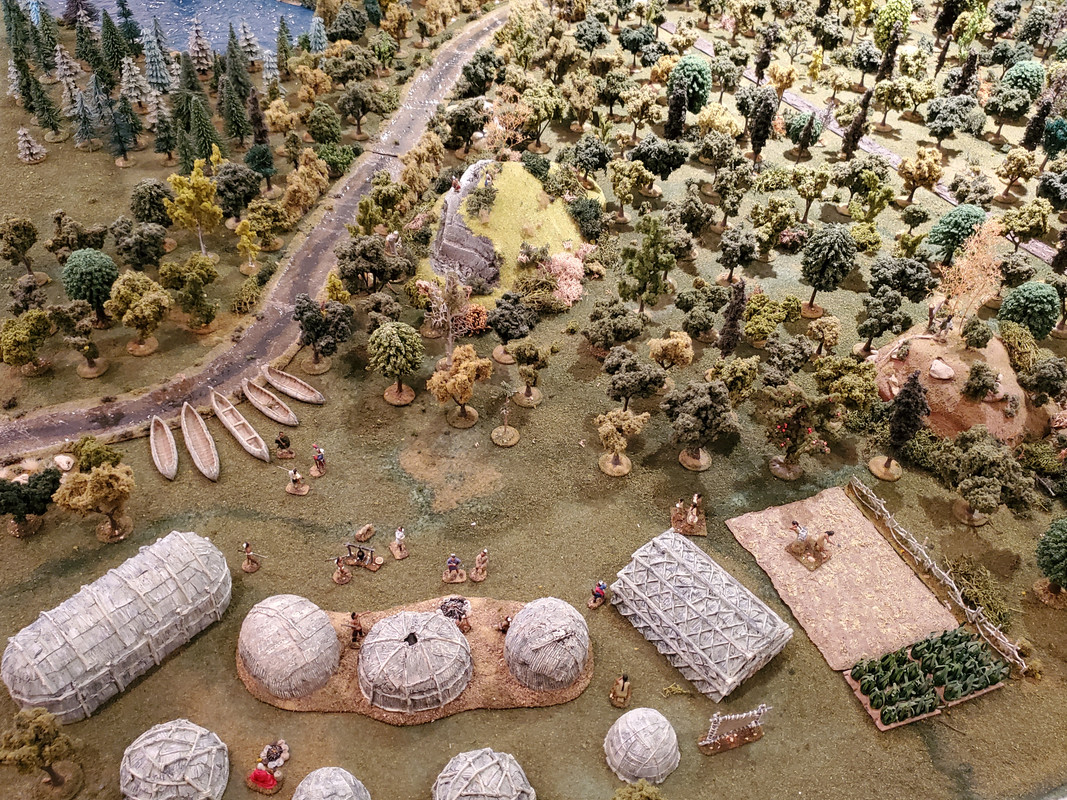
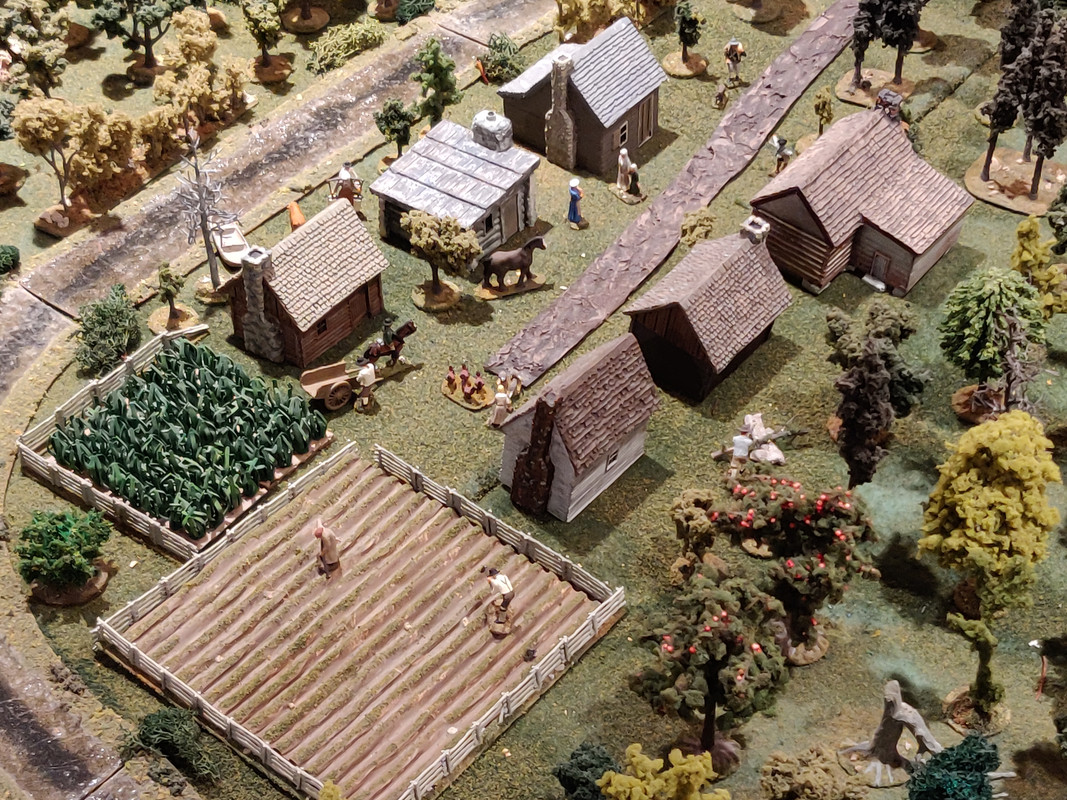
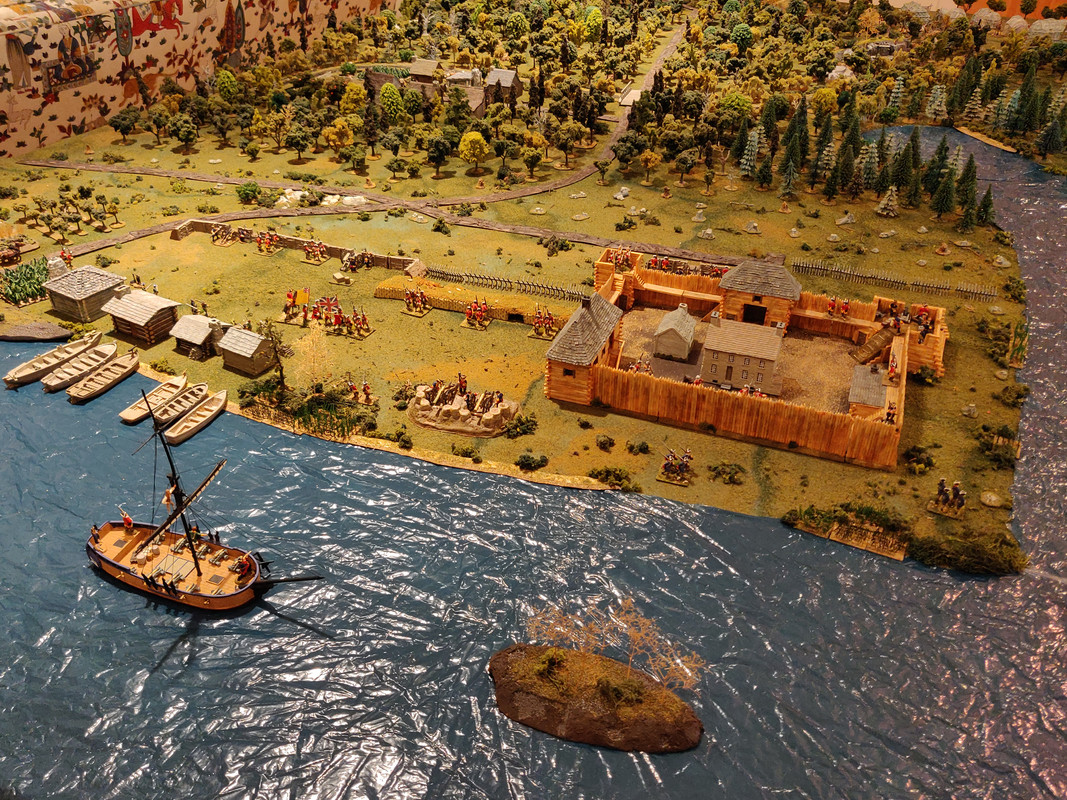
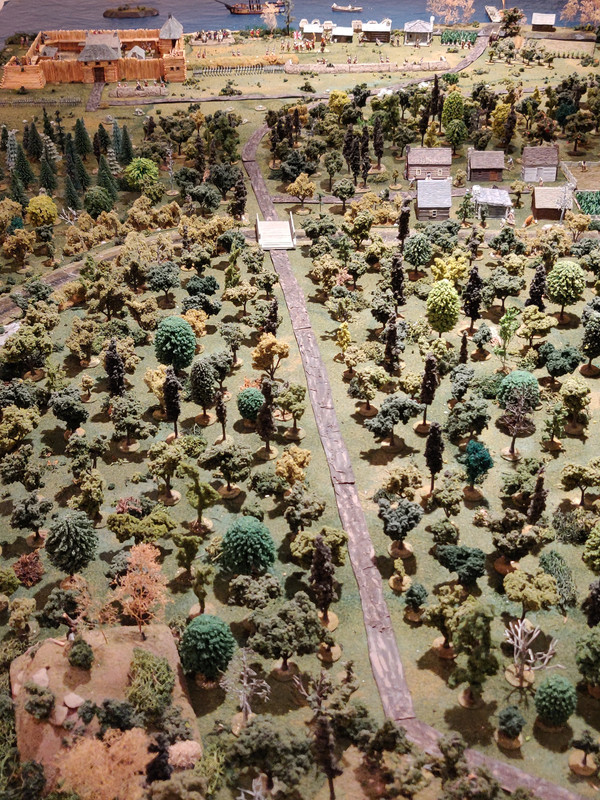
The French players began unluckily, taking three turns with the dice before the Indians were persuaded to join them. That delay allowed the patrolling the British rangers to block the road, set fire to the bridge, and herd the settlers to the safety of the fort.
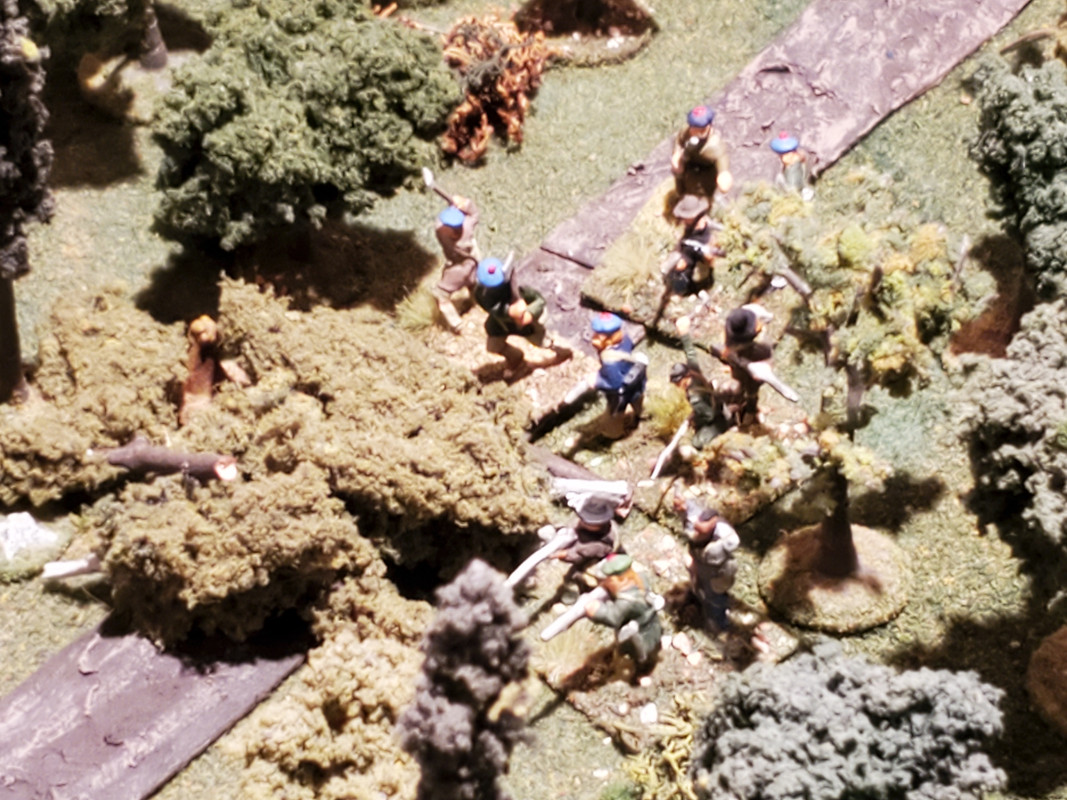

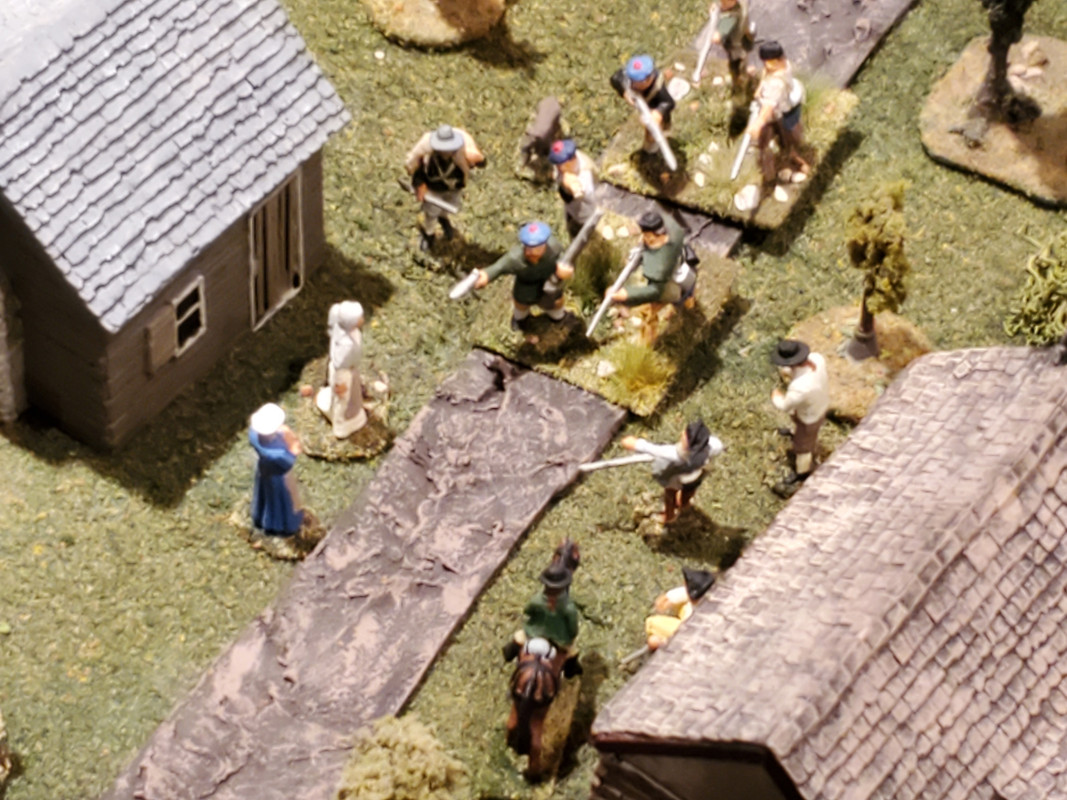
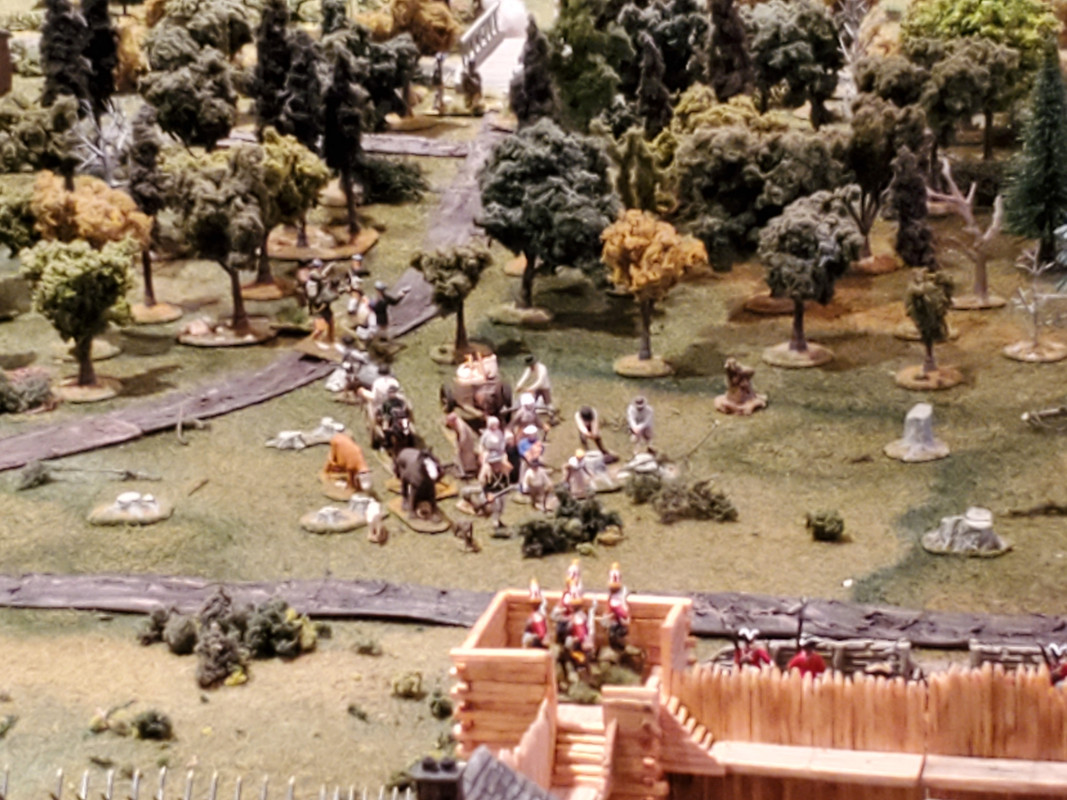
Not defending the settlement or the river gave the French side a potential victory point, but it also resulted in the Indians operating at low morale throughout the rest of the game (no scalps, loot, or prisoners from the hated settlement). The Canadians and Indians saved the bridge and skirmished with the rangers, while the British sent both the brigantine (with settlers) and a second company of rangers in whaleboats off the table (following off-table water movement rules). The Indians' numbers allowed them to force the rangers back to the fort, burn the settlement, and surround the fort.



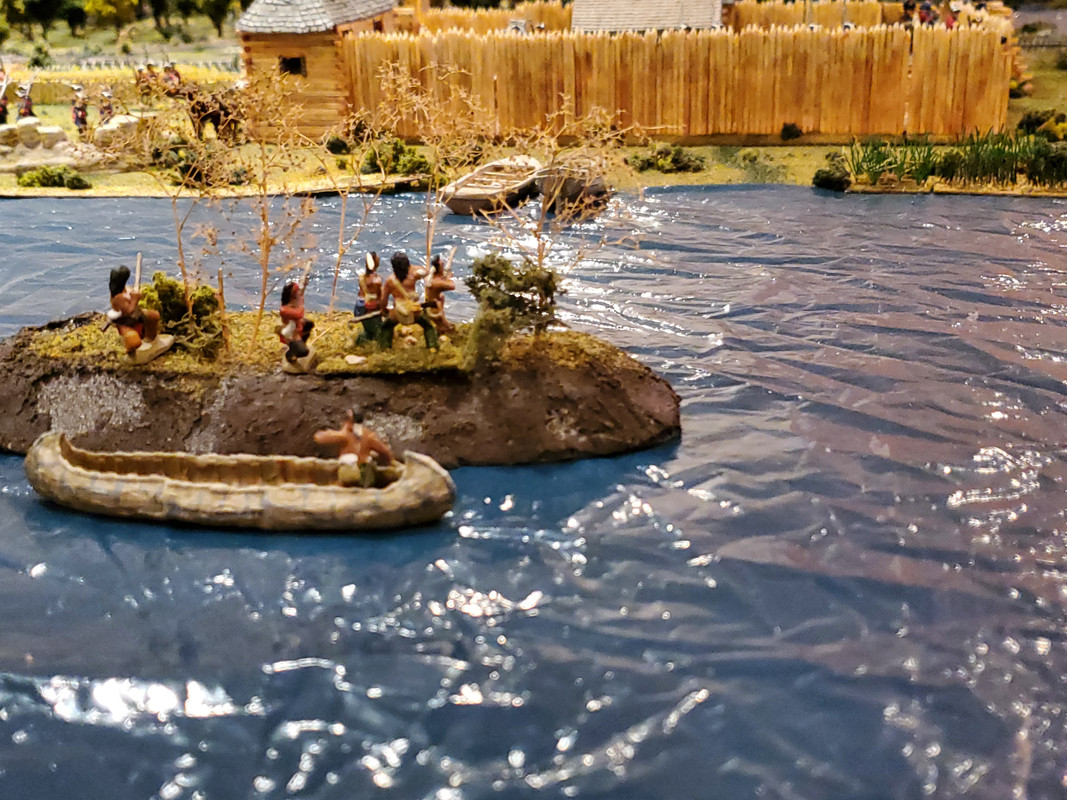
As the French regular infantry began to arrive (their siege train was delayed at the roadblock), the British and Provincials pushed back the Indians on their flank long enough to allow construction closer to the fort of a barrier of whaleboats.
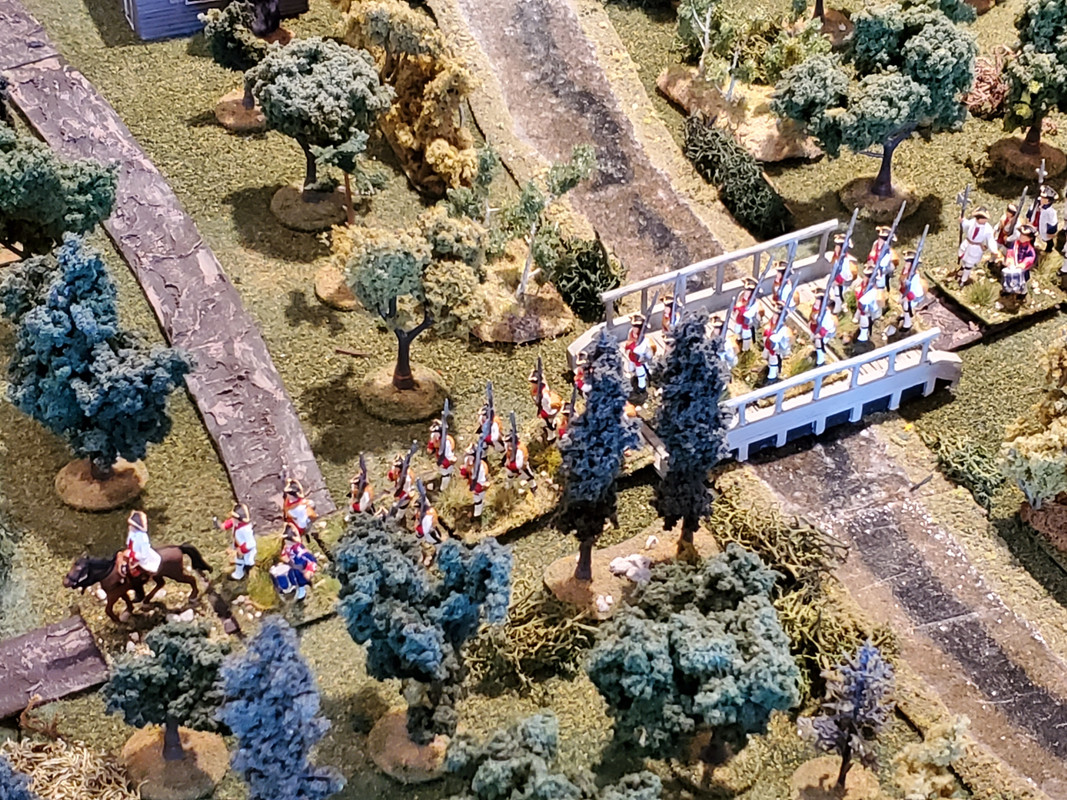
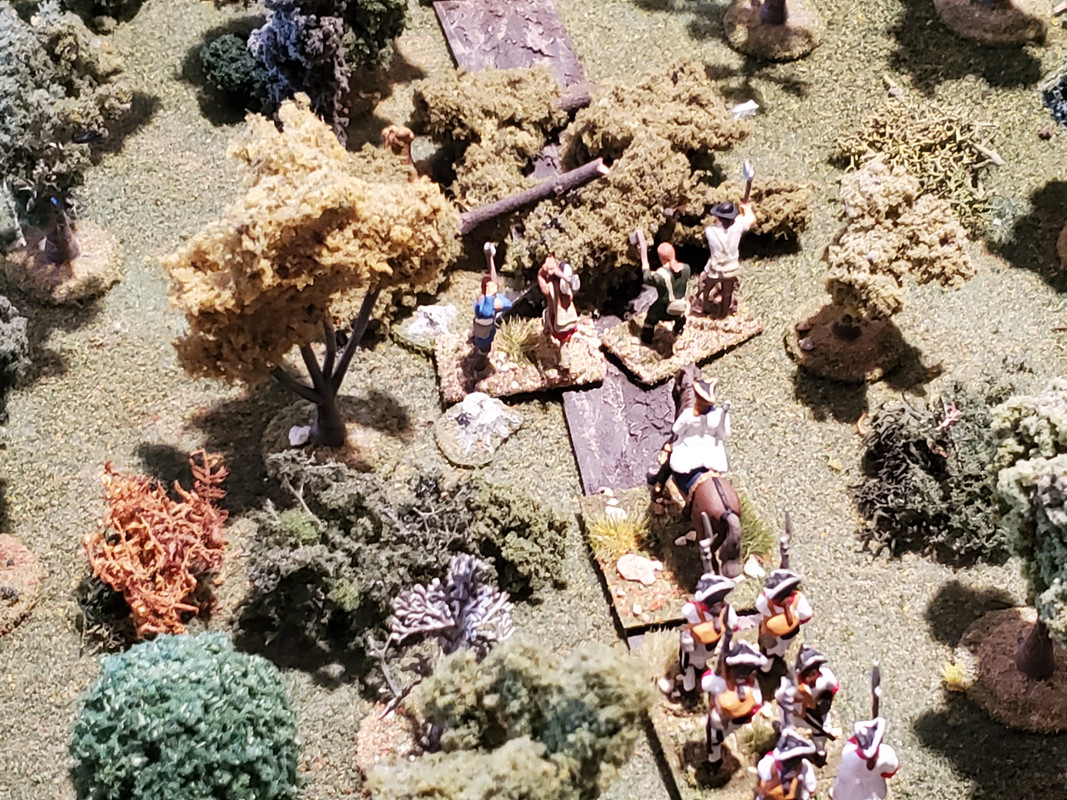

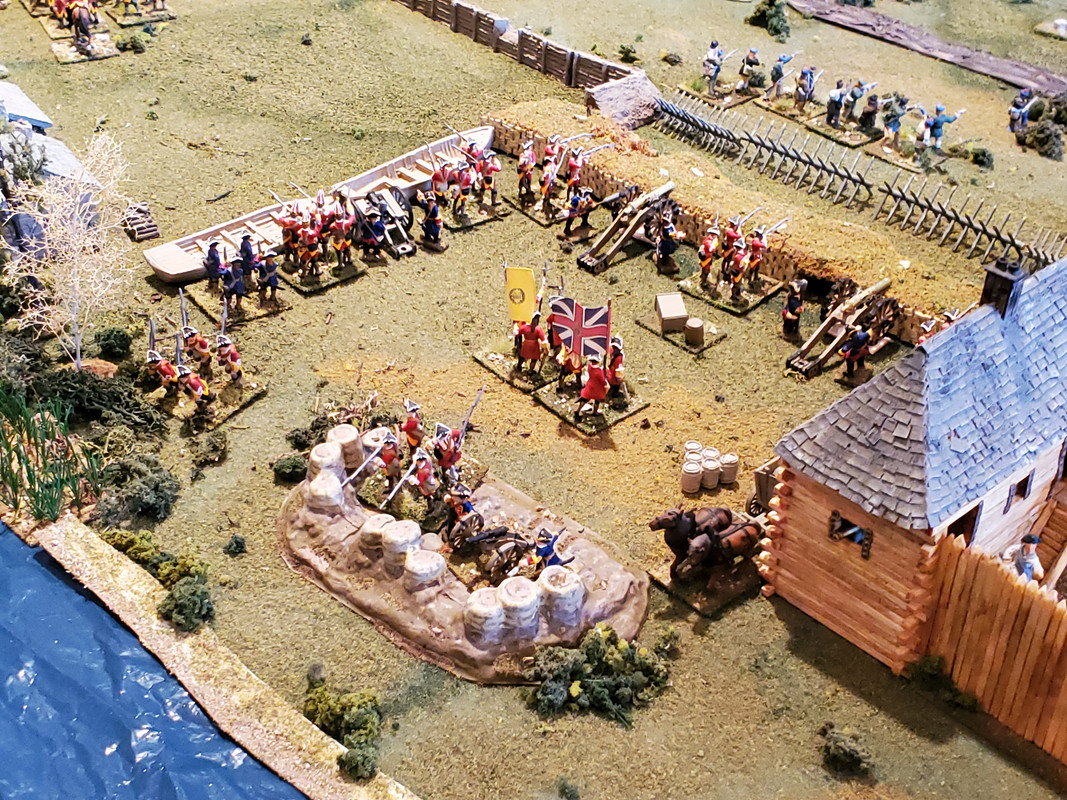
As the French infantry continued to deploy, the British again tried to push the Canadians and Indians back from their flank. But the arrival of the remaining French infantry with their siege train pushed the British forces back inside their defenses.

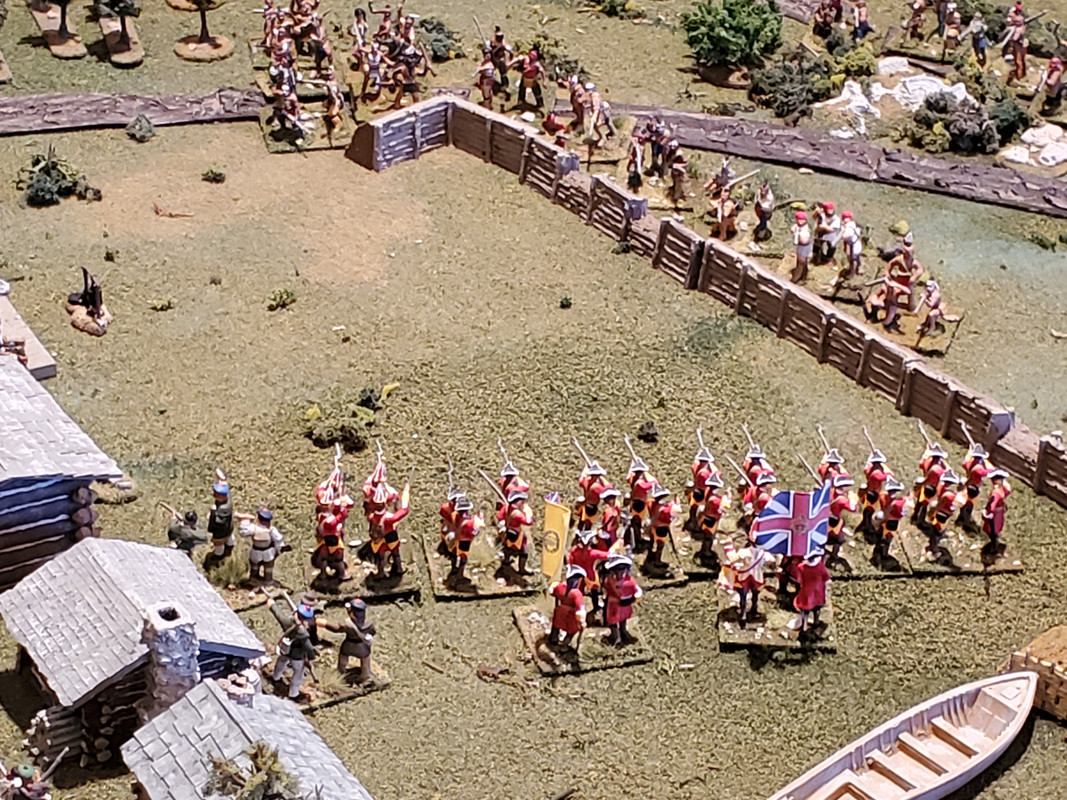
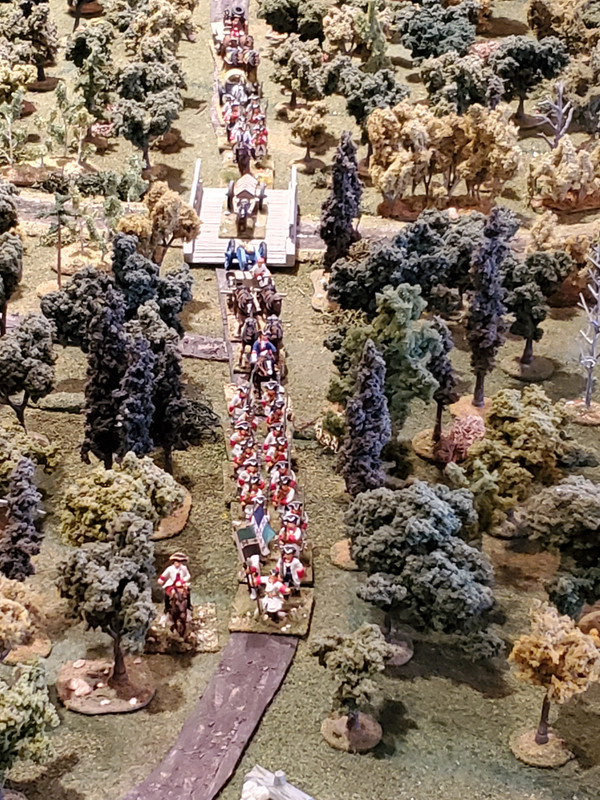

The French, under fire the entire time, succeeded in digging in their siege (along with some light) artillery with relatively few casualties, and the battle became for a while a protracted and costly artillery duel.
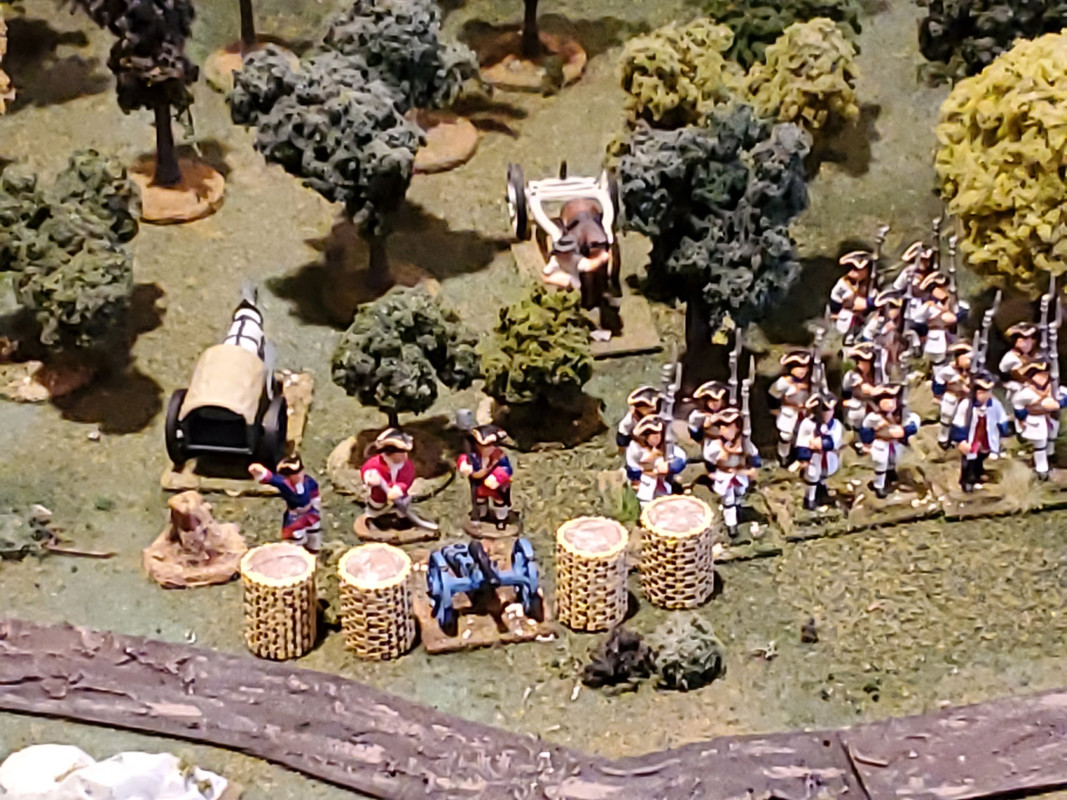
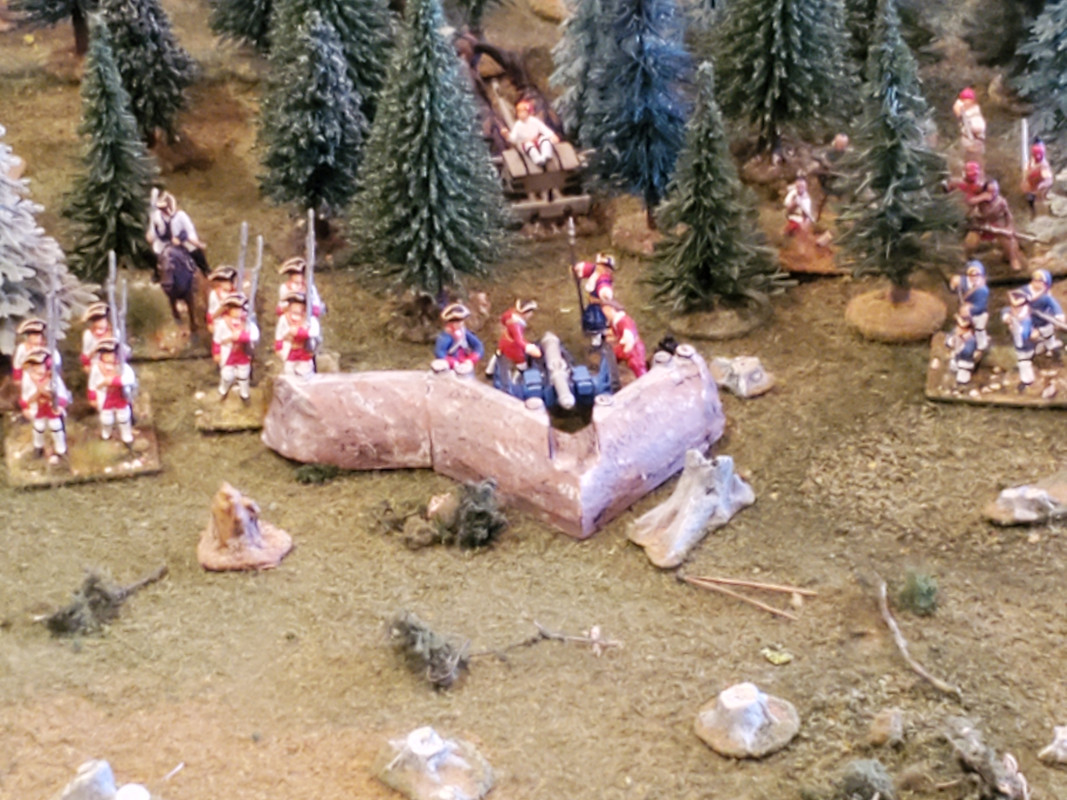
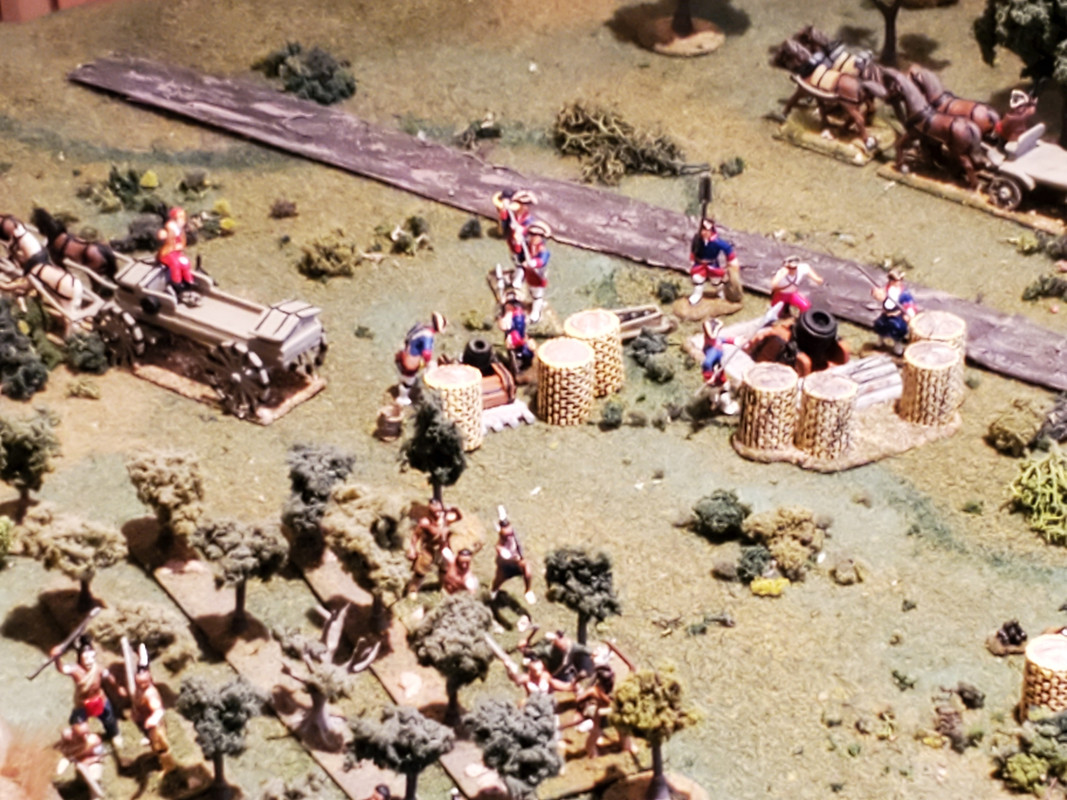
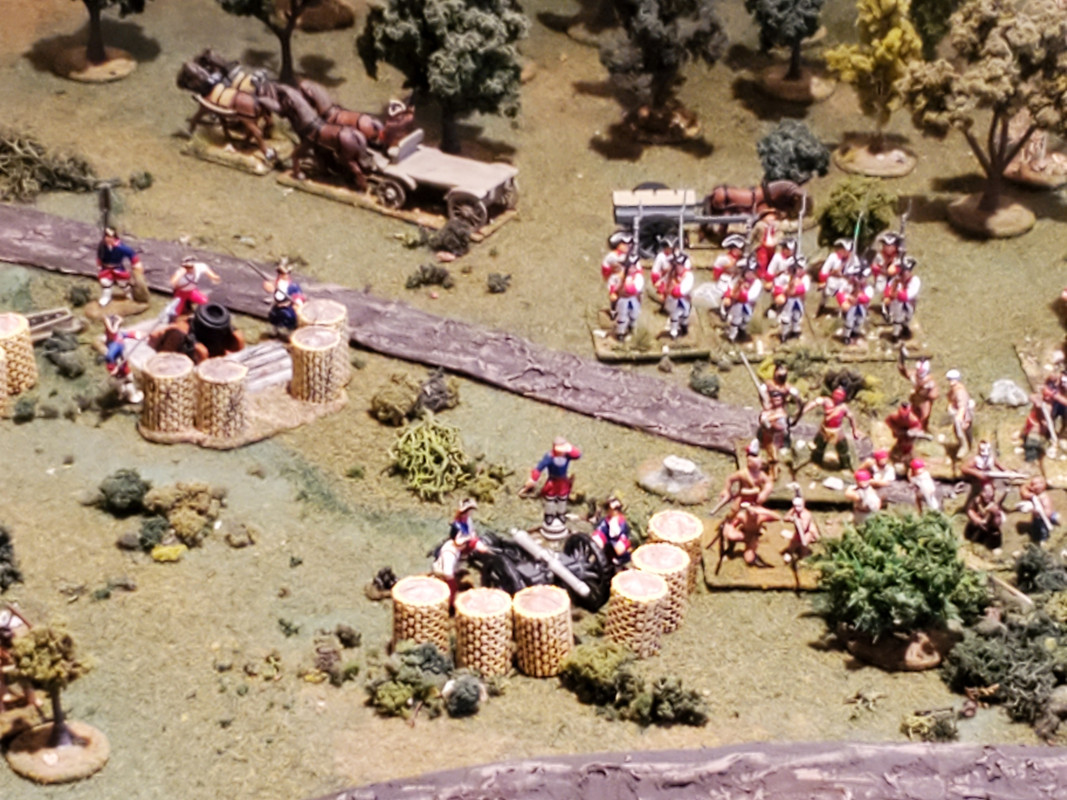

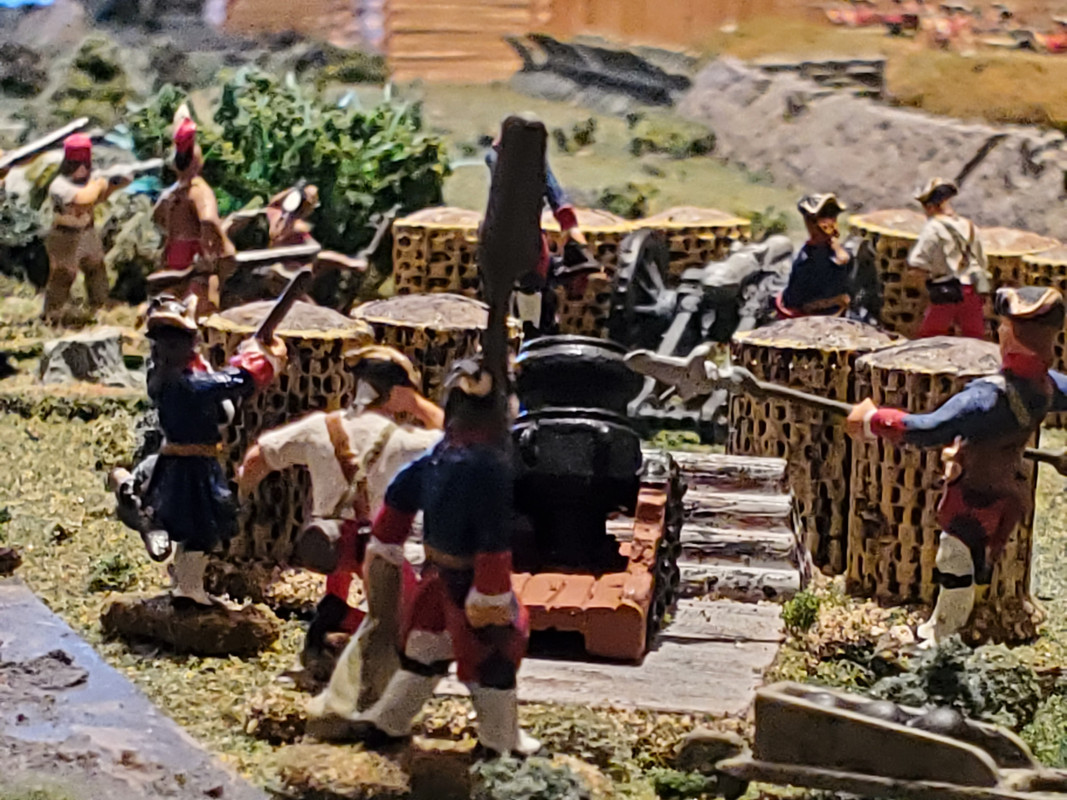
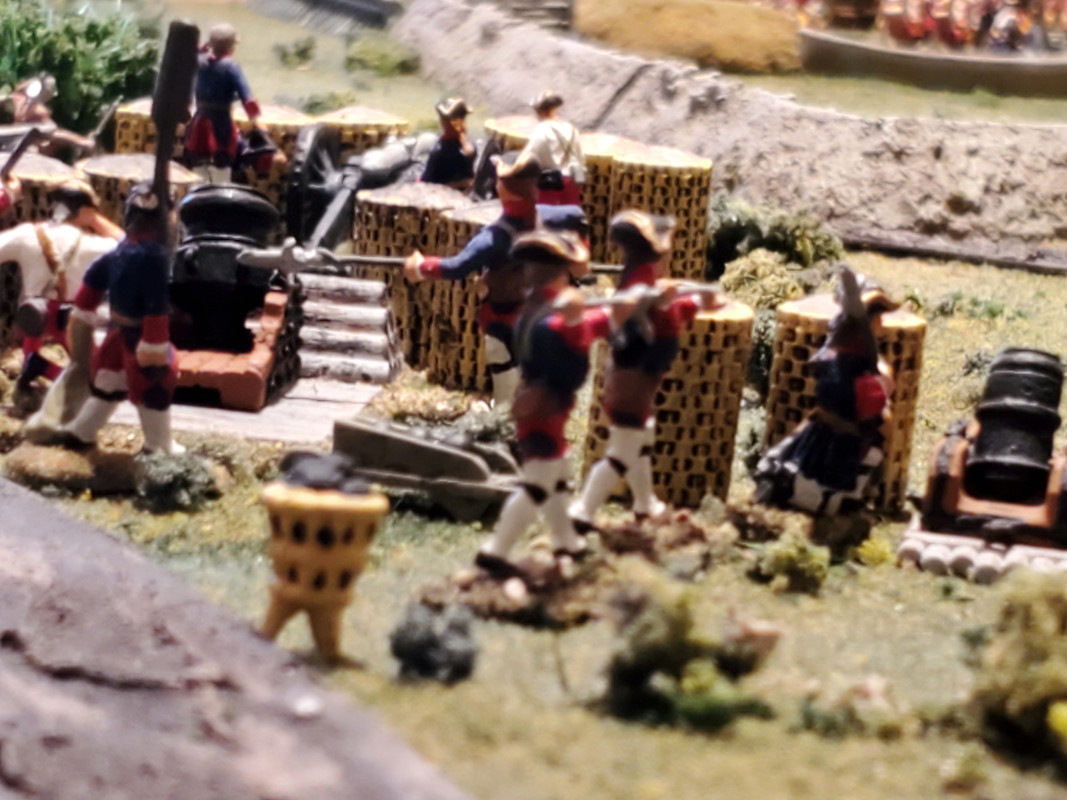
I'll report on the rest of the game (which involved a few surprises for the French players) shortly, when I have some more time.




 Moderator
Moderator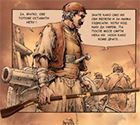



 Supporting Member (Bronze)
Supporting Member (Bronze)


